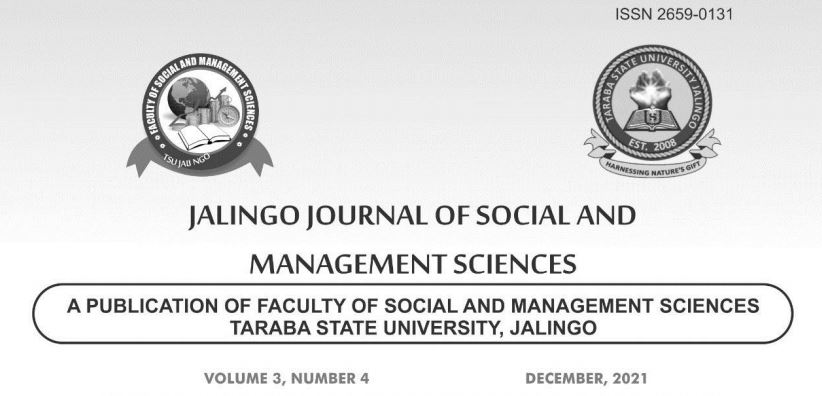Empirical Investigation of Non-utilization and Implications of Family Planning among Married Women of Dala L.G.A, Kano State, Nigeria
Keywords:
Adoption, Family planning, implication, married women, non-utilizationAbstract
The adoption and utilization of family planning services are crucial to the overall maternal and child health outcomes. Despite the increased efforts to mainstream family planning services by the federal government and other international partners in Nigeria, the poor utilization of family planning services remains a challenge. This study examined the factors influencing non-utilization of family planning and its implications among married women in Dala Local Government Area, Kano State, Nigeria. The descriptive study employed both quantitative and qualitative methods to source for data from couples in Dala LGA. While quantitative data were analyzed with descriptive statistics, qualitative data were content-analyzed. Findings of the study revealed that a majority of respondents were not using any family planning methods. Regardless of the widespread nonutilization of family planning services, most of the respondents were conversant with the various advantages attributed to the use of family planning services: reduction in poverty good health for parents socio-economic and national development prevention of sexually transmitted diseases and good health for children. Non-awareness, proximity to medical centers, religion, low education, culture, low level of exposure and so on inhibited the adoption and utilization of family planning in Dala LGA of Kano. The study recommended among others that more awareness programs should be created by government and health authorities to enhance education and orientation of couples about family planning

Downloads
Published
Issue
Section
License
Copyright (c) 2023 JALINGO JOURNAL OF SOCIAL AND MANAGEMENT SCIENCES

This work is licensed under a Creative Commons Attribution-NonCommercial 4.0 International License.
